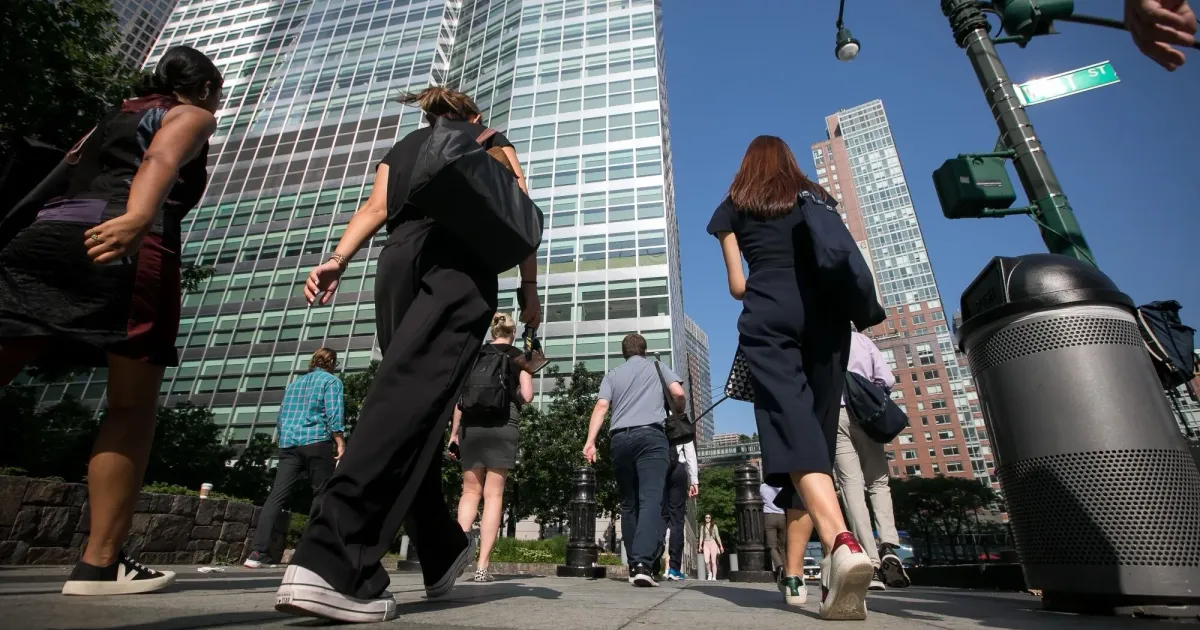Switching jobs typically makes workers happier. Now, it’s more likely to leave them more miserable than before.
People who left a job for a new one reported being less satisfied at work than those who stayed put, according to a survey from The Conference Board, a sharp reversal from their sentiments just a year earlier. In 2022, those who switched jobs scored higher on all 26 separate components of job satisfaction, from wages to work-life balance and culture. But in the most recent tally, those who quit said they were less pleased than those who remained on the majority of those elements, particularly job security, interest in work and their colleagues.
The decline could stem from those who took big pay bumps to switch employers during the pandemic — when hiring surged and quitting was rampant — but who failed to take into account other key aspects of the job such as skills training and opportunities for career development. In 2022, wage gains for job switchers soared, according to data from the Federal Reserve Bank of Atlanta, as employers dangled signing bonuses and other perks to get people in the door. Those days are now largely over, evidenced by the April payrolls report, which showed some cooling underway in the job market.
“We were pretty surprised,” said Allan Schweyer, a principal researcher at The Conference Board. “If you left a job in 2021 or 2022, you might have been offered a raise of 20% or even more, and you’re thinking, ‘I’ll take that.’ But they might not have looked at other factors, like is there a career path, and what’s the culture like? So when they get there, they realize the grass is not necessarily greener.”
Overall job satisfaction was the highest since the research organization started tracking the measure in 1987, and was higher for those who had the flexibility to work remotely all or part of the time. The least satisfied workers, according to the November survey of 1,699 people, were those in their jobs between six months and three years — largely those who switched jobs sometime during the pandemic. Those workers were most unhappy with their employers’ bonus plan, promotion policies and training.
“There’s often a honeymoon period when people switch jobs and feel better,” Schweyer said. “Now, their satisfaction is lower. They feel that nobody’s investing in their skills. They feel stuck.”

